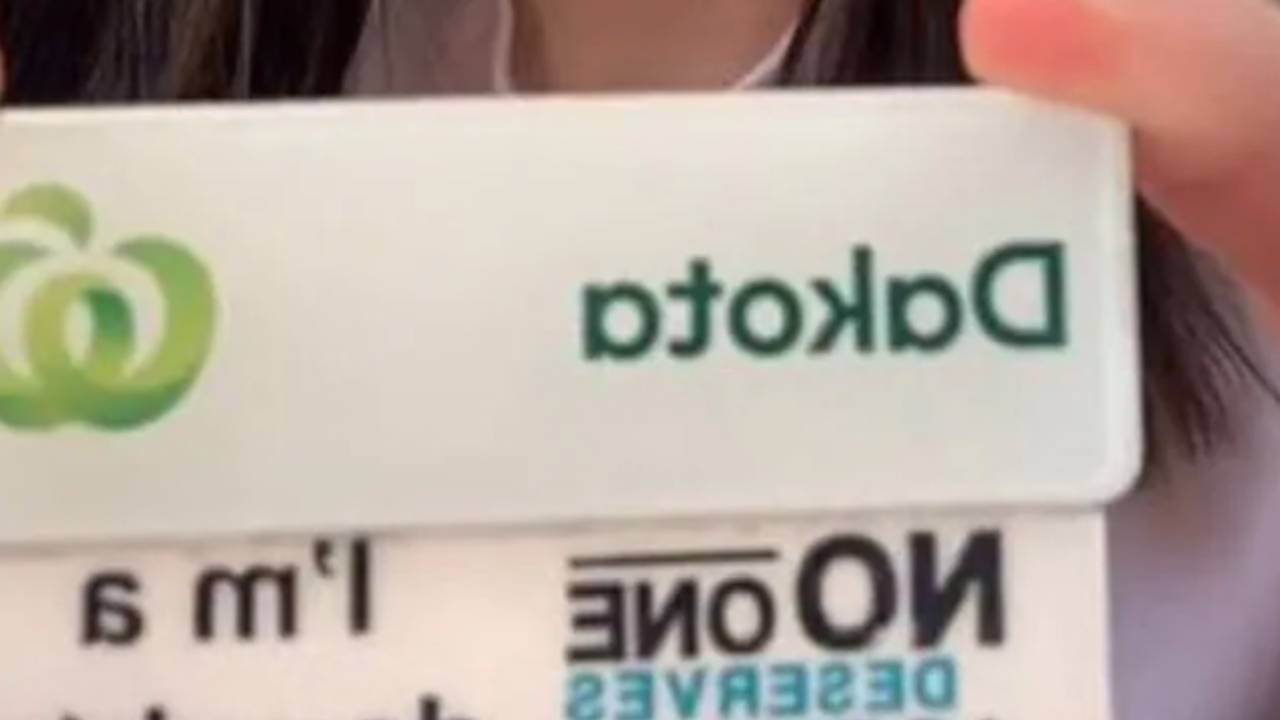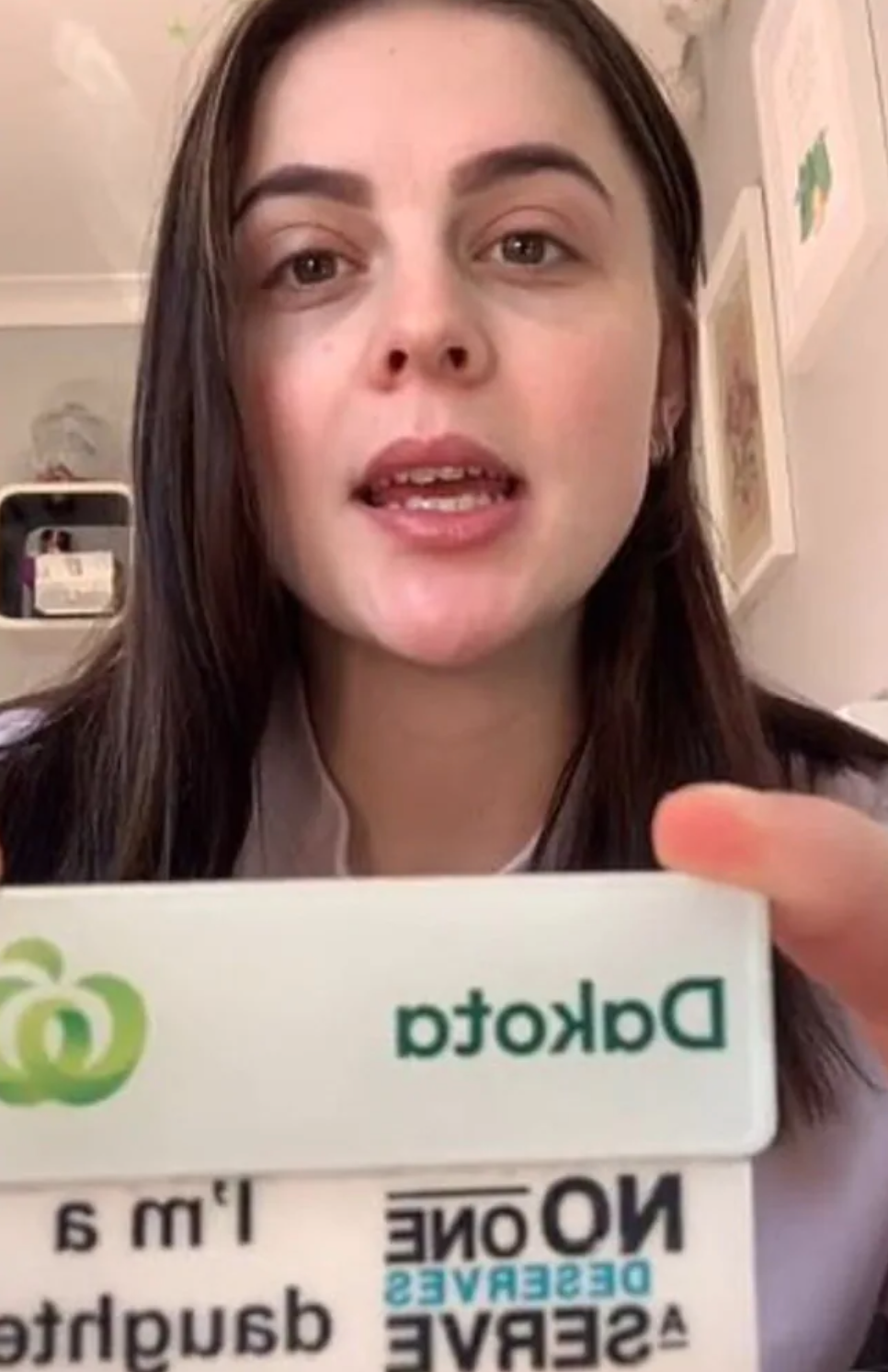Why retail workers are wearing a second badge

Since the start of the pandemic, retail workers have been at the forefront of people’s frustrations as they copped abuse on the daily.
In April, one woman was filmed racially abusing workers at a Telstra store in Sydney, telling a staff member to “go back to China, while this week another customer berated retailers over their face mask policies, saying such views “have no basis in science or fact”.
In a bid to curb the rise of abuse, particularly during COVID, staff at some of Australia’s biggest chains will now wear a second name badge.
Employees at stores such as Woolworths, Target, Big W and KFC will have a tag on their uniform stating either “I’m a mother”, “I’m a father”, “I’m a son” or “I’m a daughter” to remind customers they are someone’s family member.
A Woolworths employee recently went viral on TikTok after she explained the importance of the badge.
“A lot of people have been asking on my videos what this says and it says ‘No one deserves a serve, I’m a daughter’,” Dakota Rae Shaw said in the video.
“Basically the union brought them out to us so that people could imagine if it was their daughter they were speaking to.”

According to the union, over 85 per cent of workers are being abused while they work.
SDA NSW secretary Bernie Smith said there has been a reported 44 per cent reduction in customer aggression since the badges were rolled out.
“The idea of the badges is to humanise the person behind the counter, so the customer sees them as a person rather than somebody processing their sale,” he told Yahoo.
“They’re someone who’s part of a family and part of a community, and the badges make people think twice.”
A Facebook user recently shared her experience of a staff member wearing a badge saying “I’m a son” at Woolworths store at Lennox Head, on the northern NSW coast, on Saturday.
“He was wearing a second badge … I started asking questions as to why, and he said it was an attempt stop the abuse that they cop,” she wrote.
“He said he hasn’t experienced it in Lennox yet but in Byron Bay he did all the time because of (in his words) ‘the sense of entitlement most people there had’.
“It breaks my heart that young people just trying to do their job, especially during a pandemic, have to put up with this c**p.
“If you witness it, call it out. Not ok.”
